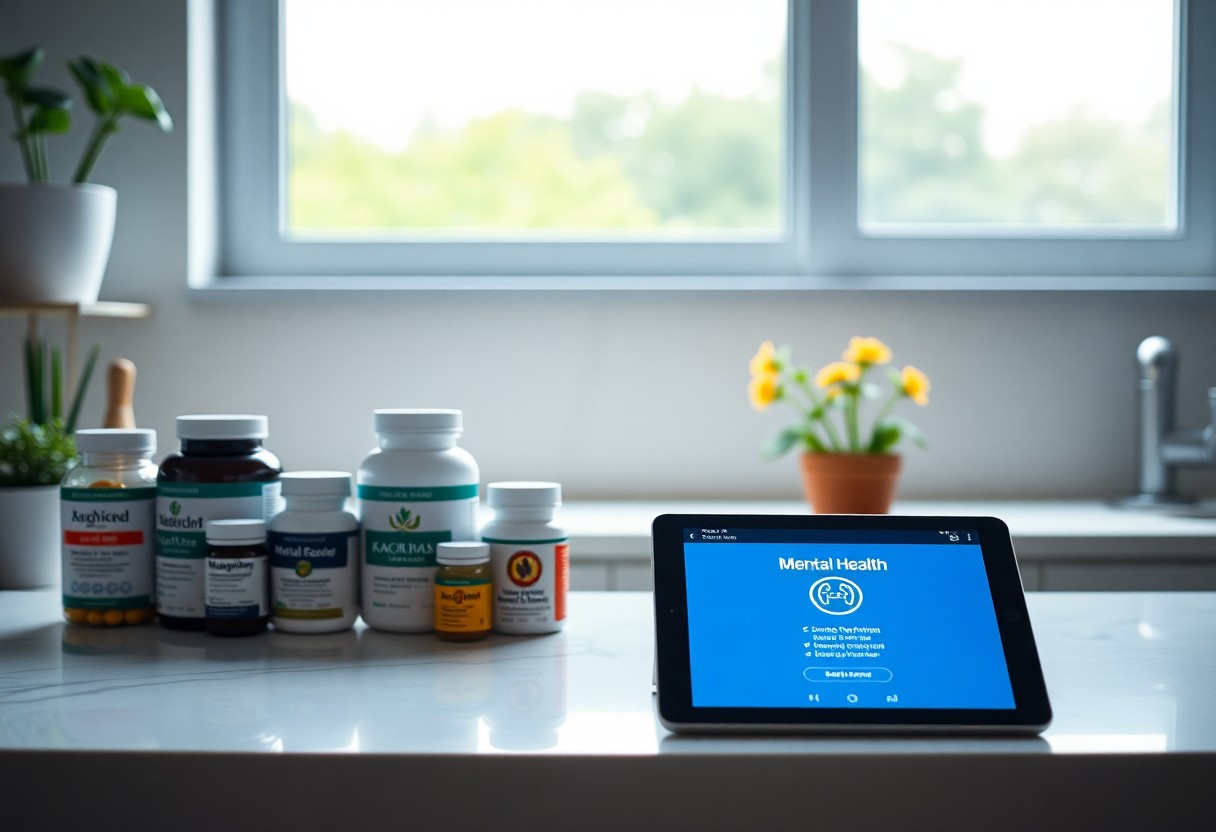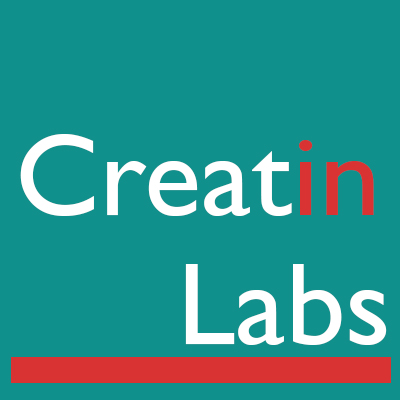You have the power to enhance your mental well-being with the right combination of technology and supplements. In today’s fast-paced world, innovative tools and natural products can serve as effective barriers against mental health issues. This blog post will explore various mental health tech advancements and dietary supplements that can support your emotional resilience and overall wellness. By understanding these resources, you can take proactive steps to fortify your mental health and navigate the challenges life throws your way.
Key Takeaways:
- Mental health technology encompasses a range of tools and applications designed to support emotional well-being and improve access to mental health resources.
- Supplementation may provide additional support for mental health conditions, with certain vitamins and minerals showing potential benefits for mood regulation and cognitive function.
- Access to mental health tech and supplements can help reduce the stigma associated with seeking help for mental illness, promoting a proactive approach to health.
- Individual needs vary; what works for one person may not work for another, highlighting the importance of personalized approaches to mental health treatment.
- Research is ongoing into the effectiveness and safety of various mental health supplements, underscoring the need for informed decisions based on evidence-based practices.
The Intersection of Technology and Mental Wellness
Modern technology and mental wellness are increasingly intertwined, providing new avenues for individuals seeking support. With the rise of mobile apps, wearables, and online platforms, navigating mental health has become more accessible. These tools not only break down barriers to care but also empower you to take control of your mental well-being from the comfort of your home. This intersection redefines how you interact with mental health resources, making support more personalized and immediate.
Digital Tools that Transform Lives
Numerous digital tools have emerged that significantly impact your mental health journey. Apps like Headspace and BetterHelp offer various resources, from guided meditations to therapy sessions, right at your fingertips. These technologies aim to integrate mental wellness practices into your daily routine, providing assistance tailored to your unique needs and preferences. Their convenience fosters a more proactive approach to managing your mental health.
The Role of AI in Tailored Mental Health Support
Artificial Intelligence is rapidly advancing the way you receive mental health support, allowing for more customized experiences. AI-driven platforms can analyze your input and behaviors, enabling them to suggest tailored resources and strategies to address your specific concerns. By assessing patterns and preferences, these AI systems work to enhance the meaningfulness and effectiveness of your mental health interventions.
AI technology, like chatbots and machine learning algorithms, is reshaping how you interact with mental health resources. For instance, platforms such as Woebot utilize conversational AI to provide real-time emotional support and cognitive-behavioral therapy techniques. They are designed to adapt to your emotional state and previous interactions, making your experience more effective. Studies indicate that users report higher satisfaction levels with these AI-driven resources, often crediting their personalized approach for helping them manage anxiety and stress better than traditional methods. By harnessing the power of AI, you can unlock a new frontier in mental wellness that feels custom-built for your needs.
Supplements: Nature’s Aid or Placebo Effect?
The debate surrounding supplements often revolves around their true efficacy versus the placebo effect. While many individuals turn to natural supplements to alleviate mental health issues, scientific validation varies. Some studies reveal promising outcomes, while others indicate little more than a psychological impact. Ultimately, understanding how supplements work—and whether they genuinely provide benefits or simply exploit the power of belief—will empower you to make informed decisions for your mental well-being.
Evaluating Efficacy: The Science Behind Popular Supplements
Research into popular supplements underscores a mix of evidence and anecdote. For example, St. John’s Wort has shown effectiveness in mild to moderate depression, while omega-3 fatty acids might support mood regulation. However, the quality and dosage of these supplements matter significantly. You’ll want to scrutinize studies and understand that individual responses can vary, making it necessary to consult healthcare professionals for tailored advice.
Safety and Regulations: Navigating the Supplement Minefield
Navigating the complex world of dietary supplements requires caution due to varying regulations. Unlike pharmaceuticals, supplements often undergo less rigorous testing before reaching the market. This gap means that contamination, mislabeling, or unreported side effects can pose significant risks. As a consumer, you should research brands and seek third-party testing to ensure product quality and safety.
The current regulatory framework for dietary supplements in many countries can be ambiguous, creating challenges for consumers seeking safe options. In the United States, the Dietary Supplement Health and Education Act (DSHEA) of 1994 established a less stringent path for supplements compared to drugs. This means that manufacturers don’t need to prove their products’ efficacy or safety before selling them. Consequently, harmful interactions with other medications or health conditions can go unnoticed. You should prioritize transparency by choosing brands that provide comprehensive ingredient lists, clinical studies, and third-party certifications to assist in optimizing your mental health journey safely.

The Digital Divide: Access and Equity in Mental Health Solutions
Access to digital mental health solutions varies greatly among different populations, highlighting significant disparities in availability and usage. Factors such as socioeconomic status, geographic location, and cultural beliefs can create barriers, preventing equitable access to the resources and tools necessary for mental wellness. Bridging this divide requires addressing both technological access and understanding, ensuring that everyone has the opportunity to utilize the mental health tools available in our digital age.
Barriers to Technology Adoption Among Diverse Populations
Challenges like lack of internet connectivity, limited digital literacy, and cultural stigma surrounding mental health services often hinder technology adoption in certain groups. Low-income individuals may find it difficult to afford devices or reliable internet, while older adults may struggle with navigating new platforms. Additionally, some communities face skepticism towards digital solutions, preferring traditional methods of therapy and support, thereby exacerbating the divide in available mental health resources.
Bridging the Gap: Initiatives for Greater Accessibility
To enhance accessibility, various initiatives are being implemented to ensure that digital mental health solutions reach neglected populations. Organizations are developing community programs aimed at improving digital literacy, increasing internet access in underserved areas, and providing culturally sensitive resources that resonate with diverse backgrounds. Innovations such as mobile clinics and partnerships with local organizations are pivotal in removing barriers and encouraging the use of technology for mental health support.
For instance, some non-profits have launched smartphone apps that offer mental health resources tailored to specific communities, offering content in multiple languages and formats. Educational workshops on how to use these technologies are being hosted in community centers, libraries, and schools to empower individuals with the skills they need to engage with digital tools. By addressing both the technological infrastructure and the knowledge gap, these initiatives can surge towards equipping individuals with the resources necessary for their mental wellness. Ultimately, increasing awareness and fostering open conversations about the benefits of these tools play pivotal roles in bridging the gap between technology and mental health support.

Beyond the Screen: Integrating Tech and Traditional Practices
Embracing both technology and traditional methods amplifies the effectiveness of mental health strategies. By integrating apps, teletherapy, and online support groups with established practices like meditation or yoga, you can create a well-rounded approach to mental wellness. This synergy empowers you to leverage the convenience of tech while benefiting from the deep-rooted wisdom of age-old healing practices. Balancing these elements can be your key to a more comprehensive mental health experience, ultimately enhancing your overall well-being.
Harmonizing Digital Solutions with Therapy and Counseling
Digital tools can enhance your therapy sessions, offering supplemental resources and ongoing support. For example, using mindfulness apps between visits or engaging in virtual therapy can provide immediate access to coping strategies and exercises. Your counselor might even recommend specific apps tailored to your therapeutic goals, reinforcing your progress and allowing for continuous self-reflection. This blend of digital solutions and traditional therapy presents an opportunity for deeper engagement in your mental health journey.
The Future of Holistic Approaches in Mental Health
The future of mental health care lies in a holistic approach that combines technology with traditional methods, creating a well-rounded wellness experience. As research continues to evolve, practices integrating mindfulness, nutrition, and exercise with cutting-edge tech will gain traction. This fusion not only addresses the psychological component of mental health but also considers emotional, physical, and social factors, leading to comprehensive healing. As the landscape changes, personalized plans tailored to your unique needs will become crucial, guiding you toward a healthier and balanced life.
As you contemplate holistic approaches, think about how they can be tailored to fit your individual needs. For example, you might explore nutrition-focused apps that monitor dietary habits while incorporating regular counseling sessions to discuss your emotional relationship with food. Telehealth also opens doors for incorporating alternative therapies, like art or music therapy, which can complement traditional psychotherapy. Innovations in wearable tech may help you track your mental health indicators, promoting a preventive and proactive approach. The ongoing integration of diverse methodologies empowers you to take control of your mental wellness journey, enhancing both your understanding and experience.
Addressing Skepticism: Changing the Narrative on Tech and Supplements
Overcoming skepticism surrounding tech and supplements for mental health involves reframing the conversation. Rather than viewing these innovations as fads, it’s crucial to position them as tools that can enhance traditional methodologies. With the ongoing research and positive outcomes seen in various studies, you can be part of the dialogue that advocates for scientifically-backed solutions, promoting integration in everyday practice.
Testimonials vs. Clinical Evidence: Finding Common Ground
While personal testimonials often highlight individual successes with mental health tech and supplements, clinical evidence provides a broader validation. By recognizing the value in both perspectives, you can appreciate the compelling narratives that motivate some users, while also grounding yourself in the rigorous data that supports these interventions’ efficacy.
Building Trust in Tech and Supplement Innovations
Establishing trust in mental health tech and supplements revolves around transparency and accountability. Companies must demonstrate their commitment to quality through third-party testing, peer-reviewed research, and robust customer support channels. Engaging with users to share data and feedback fosters a community where innovation can thrive, ensuring you feel secure in your choices.
Exploring trust-building initiatives could further solidify your confidence in mental health innovations. For instance, certifications from recognized health organizations, informative webinars hosted by qualified experts, and user engagement through forums or workshops can demystify the development processes behind these products. By showcasing case studies, real-world applications, and ongoing studies, companies can create a narrative that emphasizes reliability while fostering a sense of shared responsibility among users and developers alike.
Final Words
With these considerations, you can understand how mental health technology and supplements serve as effective barriers against illness. By integrating innovative tools and evidence-based nutritional support, you empower yourself to manage stress, anxiety, and mood fluctuations more effectively. Staying informed about these resources enables you to take proactive steps toward enhancing your mental well-being. Prioritizing your mental health through technology and supplements can enhance your overall quality of life and resilience in facing challenges.
FAQ
Q: How can mental health technology help in managing symptoms of anxiety and depression?
A: Mental health technology offers various tools such as mobile apps, online therapy platforms, and virtual support groups that provide easy access to resources. These technologies allow individuals to track their moods, learn coping strategies, and connect with licensed professionals. By leveraging these resources, people can receive support at their convenience and engage with their mental health actively.
Q: What role do supplements play in supporting mental health?
A: Supplements can provide important nutrients that support brain health and emotional well-being. For example, omega-3 fatty acids, vitamin D, and certain B vitamins have been linked to improved mental health outcomes. However, it’s important to consult a healthcare provider before starting any supplement regimen to ensure they’re suitable for individual health conditions and won’t interact negatively with other medications.
Q: Are there any known barriers associated with using mental health tech?
A: There can be several barriers to using mental health technology, including limited access to reliable internet or smartphones, lack of digital literacy, and privacy concerns. Additionally, not everyone may feel comfortable seeking support through a digital platform, preferring traditional face-to-face interactions. It’s important to address these barriers by educating individuals about the available technologies and providing guidance on their use.
Q: How can one determine which mental health supplements are appropriate for their needs?
A: Assessing which mental health supplements to consider begins with a discussion with a healthcare professional who can evaluate individual health history, current medications, and specific symptoms. An evaluation may involve blood tests to identify deficiencies and guide appropriate supplement choices. Each person’s needs vary, so a personalized approach is key to finding the most effective options.
Q: What safety precautions should be taken when using mental health supplements alongside traditional treatments?
A: When incorporating supplements into a mental health treatment plan, it’s vital to communicate openly with healthcare providers about all medications and supplements being taken. This helps avoid potential interactions and ensures a comprehensive approach to treatment. Additionally, individuals should be cautious about self-prescribing or using unverified products, as safety and efficacy vary widely among available supplements.

